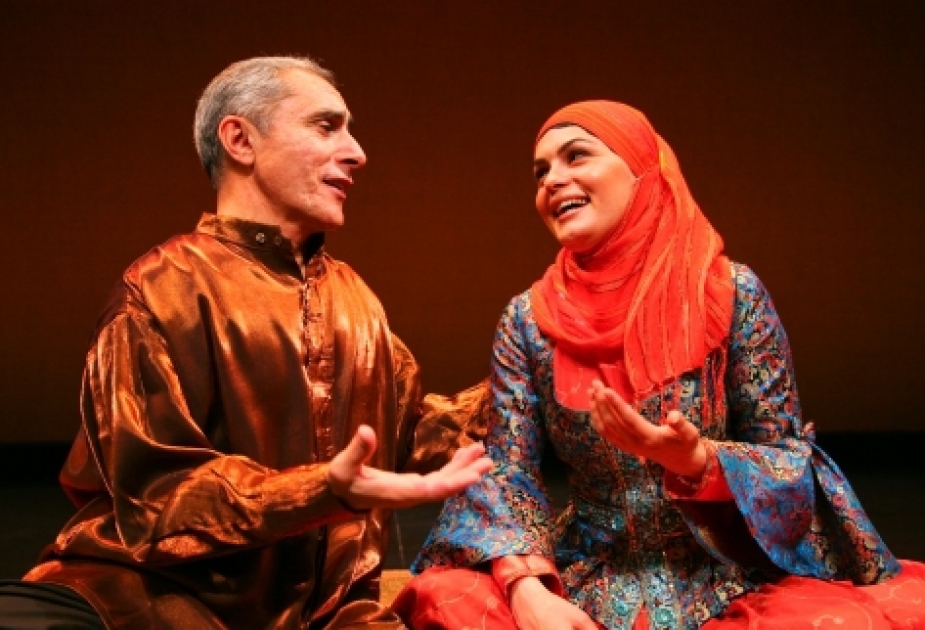Alim Gasymov holds the record for being the most accomplished mugham master, receiving the Order of Glory, and being a winner of the UNESCO Music Prize. A person who elevated the world’s fascination with Mugham’s ancient art to a new level. The New York Times has identified him as one of the greatest living singers, possessing a fiery spontaneity that evokes passion and devotion, contemplation and spell. The world-famous singer was born on 14 August 1957 in his mother’s homeland, near Shemakhi, in the mountain settlement of Nabur. His father was of Gurbanchi (Gobustan), inhabited by the Terekeme population. His grandfather danced and sang perfectly, he had a beautiful voice. His mother’s ancestries were ashugs (ashug is a professional traditional storyteller, playing a string tweezer instrument called saz). “They would wake up at four or five in the morning, whip up milk, make sour cream, and then sell it on the market. At six o’clock in the morning, the radio was already on. As kids, we would stand outside our rooms like chicks and observe what was happening. They would begin listening to the records on their old record player when the radio went off. As a child, I would rap out some rhythms and play melodies on the strings that my father had nailed to a tree for me. And then my father designed a tambourine (daf) literally from nothing, as well as the saz, and just like that, I was embroiled in…” Thus, Gasymov’s musical journey began at a young age. With his father’s guidance, he started his formal training in mugham and immersed himself in the intricate melodies and profound poetry that define this traditional genre. He became a student of masters like Agahan Abdullayev and Hajibab Huseynov upon joining the music school. His unique mugham performance was formed in unique ways by all of them. “I understand that the tradition if we think about mugham, is first of all the rule of the sound series, or scale, which should be strictly observed when performing sections of the musical composition. Every artist, acknowledging the experience of masters from the past, learns and adheres to this tradition. However, the singer can form his own performing style: using spontaneously heard or learned material in the composition sections, and incorporating the breath( nafas) of different singers in small composition sections.. A specialized order for performing mugham-dastakh has been created by our masters, which differs from other similar music.” The breakthrough of the mugham master took place in 1988, when he won the prestigious ‘Guryush’ award in Baku, a triumph that marked the beginning of his star career. Gasymov was recognized internationally for his ability to convey deep emotions through mugham art in performances s that went beyond Azerbaijani culture. His art had a wider impact than just music. Gasymov became a symbol of cultural diplomacy with his concerts during an era of political and cultural change. By collaborating with musicians from different backgrounds, he was able to break down barriers and promote mutual understanding through music, which is the universal language. In 1999, he was awarded the International IMC-UNESCO Music Prize in recognition of his musical contributions to world peace – a testament to his contribution to the preservation and promotion of cultural heritage through music.

